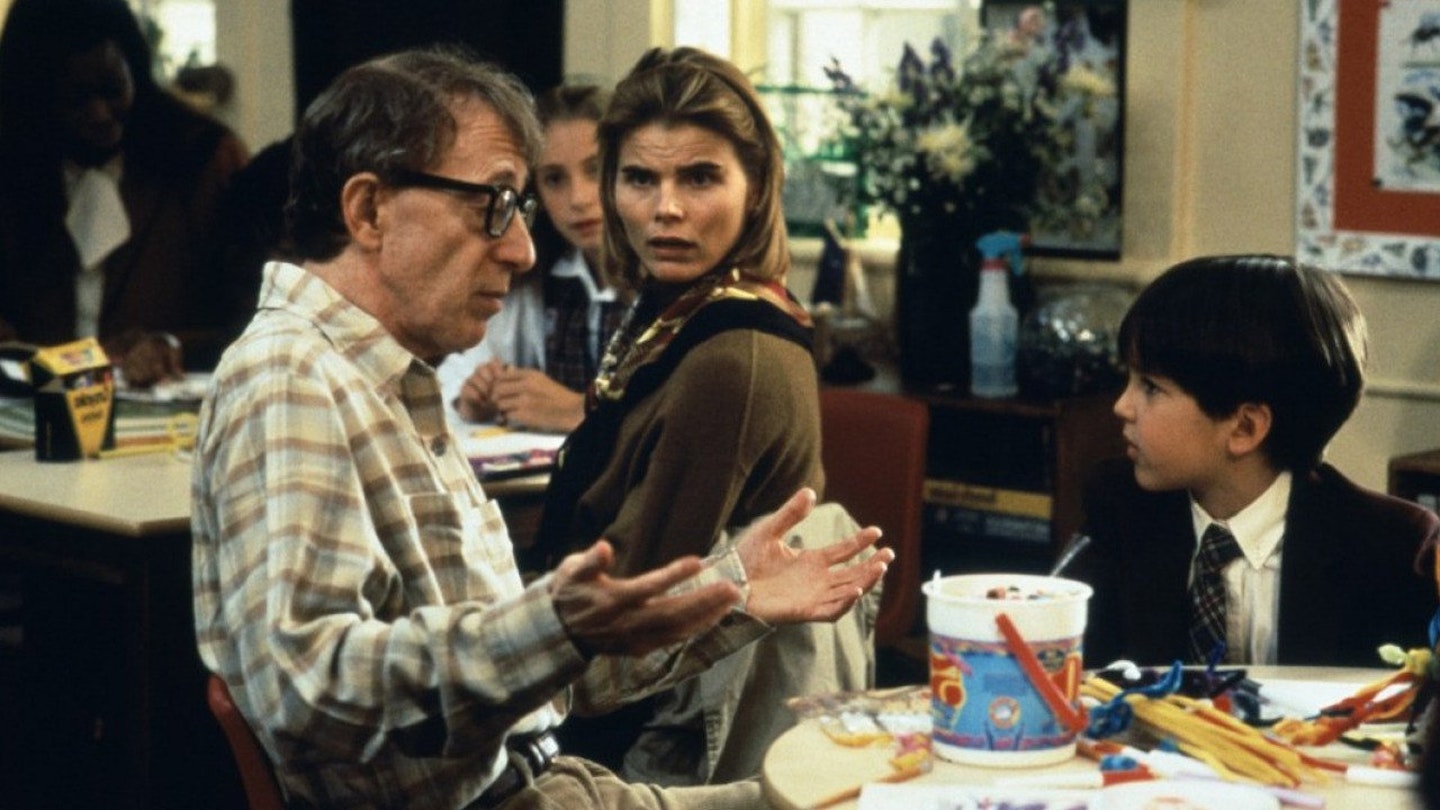Woody Allen's 27th film as writer-director, his 24th comedy, is his most nakedly self-confessional work yet. Unnervingly, it is both hilariously funny and quite disturbing, with Allen's neuroses and fixations manifested in some shocking ugliness and intimately personal revelations we'd rather not have seen confirmed.
Allen's screen alter ego is writer Harry Block, whose career has been spun out of turning his neurotic and erotic misdeeds into thinly disguised fiction. Six analysts and three wives down the line, Harry still hasn't grown up and knows it, admitting he likes prostitutes because "you don't have to talk about Proust and films" with them, and deceiving himself with regard to his inappropriate relationship with a 25-year-old (Shue). Harry's life, with emphasis on his sexual kinks and emotional inadequacy, is explored by contrasting extracts from his writing with the "reality" - with Demi Moore, Julia-Louis Dreyfus, Richard Benjamin, Robin Williams, Stanley Tucci and Tobey Maguire playing, respectively, the fictional counterparts of Harry's second ex (Alley), his third ex (Amy Irving)'s sister (Davis), and four different Harrys.
Comedy and drama collide in some surreal heights, as when Harry's literary creations begin appearing in his "real" life to confront him, and Harry's rival for Shue, Larry (Billy Crystal) appears as the Devil in Harry's dream of descent into hell. In the most brilliant conceit, Harry's short story character movie star Mel (Williams) goes out of focus in real life and everyone has to accommodate his distortion by wearing funny glasses.
What's deeply awful here is that after all these years giving the impression that he loves women, Allen airs a rage and loathing (we're interpreting Alley and Davis, at least, as Mia Farrow stand-ins) unprecedented in his work, and hateful obscenities directed at the women that are all the more appalling coming so unexpectedly from his mouth. Even with its abundance of pithy one-liners and honest insight, most viewers are likely to be discomfited by such autobiographical obsession, and bound to agree with Woody Harry's anguished climactic screech "I'm OD-ing on myself!" Too true.
